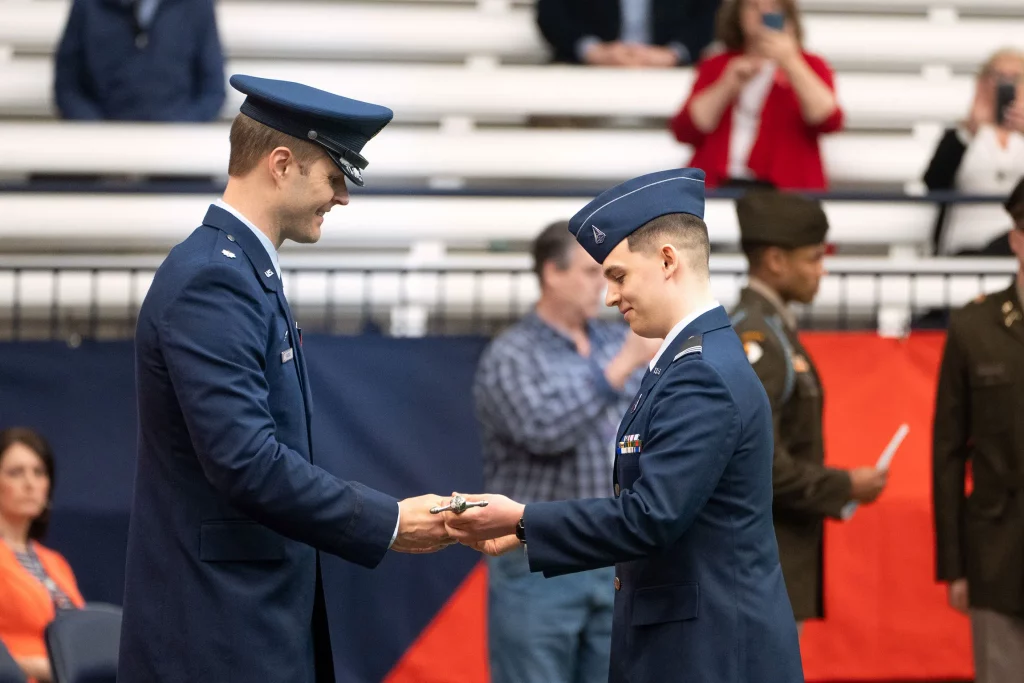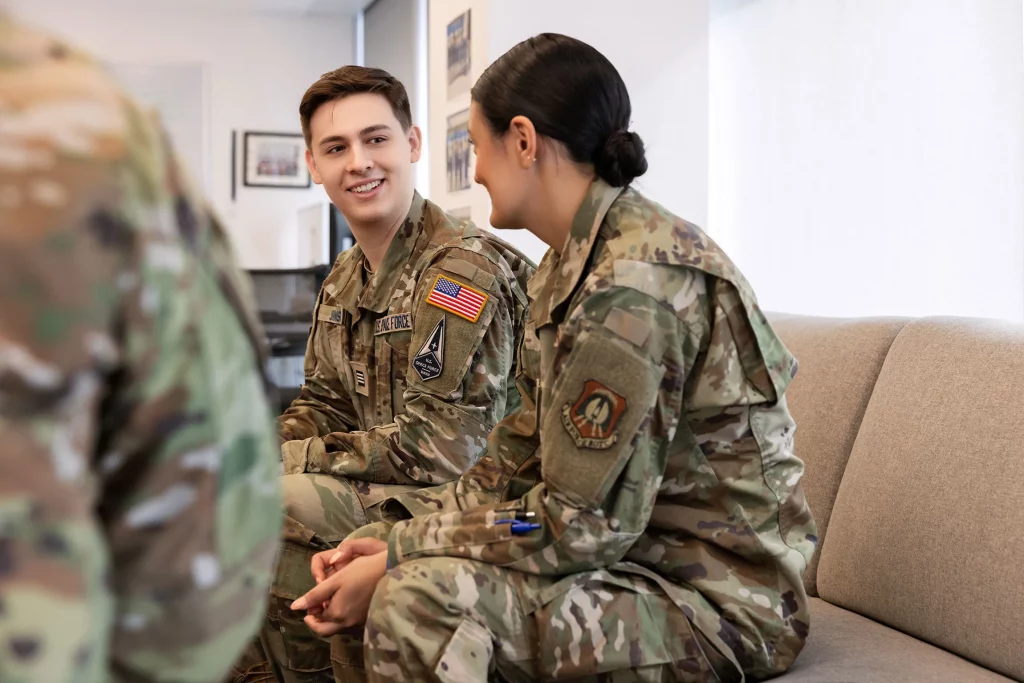Benjamin Johnson ’24 was a rising junior at Syracuse University when he found his calling. Only it didn’t happen on campus but, rather, a thousand miles away at historic Maxwell Air Force Base in Alabama.
A cadet lieutenant colonel in Syracuse’s Air Force ROTC Detachment 535, Johnson had successfully competed for a spot in Maxwell’s rigorous field training program. The two-week, boot-camp-style experience, he explains, was a crash course in survival training, deployment skills and physical conditioning.

“It was super intense—running around every day in 90- to 100-degree heat and yelling until I was hoarse,” recalls the camp’s Distinguished Graduate. “But I proved to everyone, including myself, that I could do it. That’s when ROTC took on new meaning to me.”
Johnson is parlaying his military mettle into an astronomical job opportunity. In May, Johnson will become the first student from Syracuse University to commission directly into the United States Space Force upon graduation. The Virginia native will spend the next four years designing computer architecture as well as integrating hardware and software for the nation’s space defense system.
Syracuse University sat down with Johnson—a computer engineering major in the College of Engineering and Computer Science (ECS) and a 2023-24 Remembrance Scholar—to discuss his skyrocketing career growth.

Congratulations on your Space Force commission. What are you most excited about?
Being part of something new. Even though U.S. space operations have been around for decades, Space Force [founded in 2019] is unique because its mission is to secure our nation’s interests in, from and to space. It uses space assets to support joint military operations and ensure our nation’s access and freedom to operate in outer space.
I’ve been hired as a computer developmental engineer—part of a small, STEM-focused workforce that deals with technical, quantitative problems. Since Space Force works closely with industry, many of my fellow Space Force Guardians, about a third of them, will be civilians. I’m excited to operationalize new technical and scientific developments.
What kind of specialized training is involved?
I’ll initially enroll in OTC [Officer Training Course], which is like active-duty tech school for Space Force officers. I’ll then embark on a three-year OPEX [Operational Experience] tour, honing my skills for a career in space operations, intelligence or cybersecurity. I won’t officially work as an engineer until my fourth year of service.
What led you to Syracuse University?
My father, who recently retired from the Coast Guard, has been a huge inspiration to me. He’s probably the main reason I joined ROTC.
Although there were many ROTC programs on my college wish list, I didn’t find out about Syracuse until Capt. David Stebbins emailed me. [Then a recruiter for the University’s Air Force ROTC detachment, Stebbins has since retired as a major from the military.] He informed me that we’re one of the nation’s best universities for veterans and military-connected students.
Capt. Stebbins also helped me get my foot in the door. He also helped me land scholarships and other awards at Syracuse, like the Remembrance Scholarship, the Dottle Family ROTC Cadet Scholarship and the ECS Leadership Scholarship.
What do you like most about Syracuse University?
That I’m able to chart my own path. Syracuse has enabled me to combine my twin passions for space exploration and computer engineering into a dream job. Whether I become a “lifer” in the military or eventually join a civilian company, I’m going to be happy.
This wouldn’t be possible without my ECS professors and the officers and NCOs in my cadre. All of them are genuinely committed to teaching me—not just facts and figures in a textbook, but character development.
Syracuse has uniquely prepared me for Space Force, which develops “leaders of character.” Such leaders aren’t in it for themselves. They embrace the branch’s core values of character, connection, courage and commitment. Leaders of character are who our nation turns to during times of uncertainty. That’s the kind of person I want to become.
